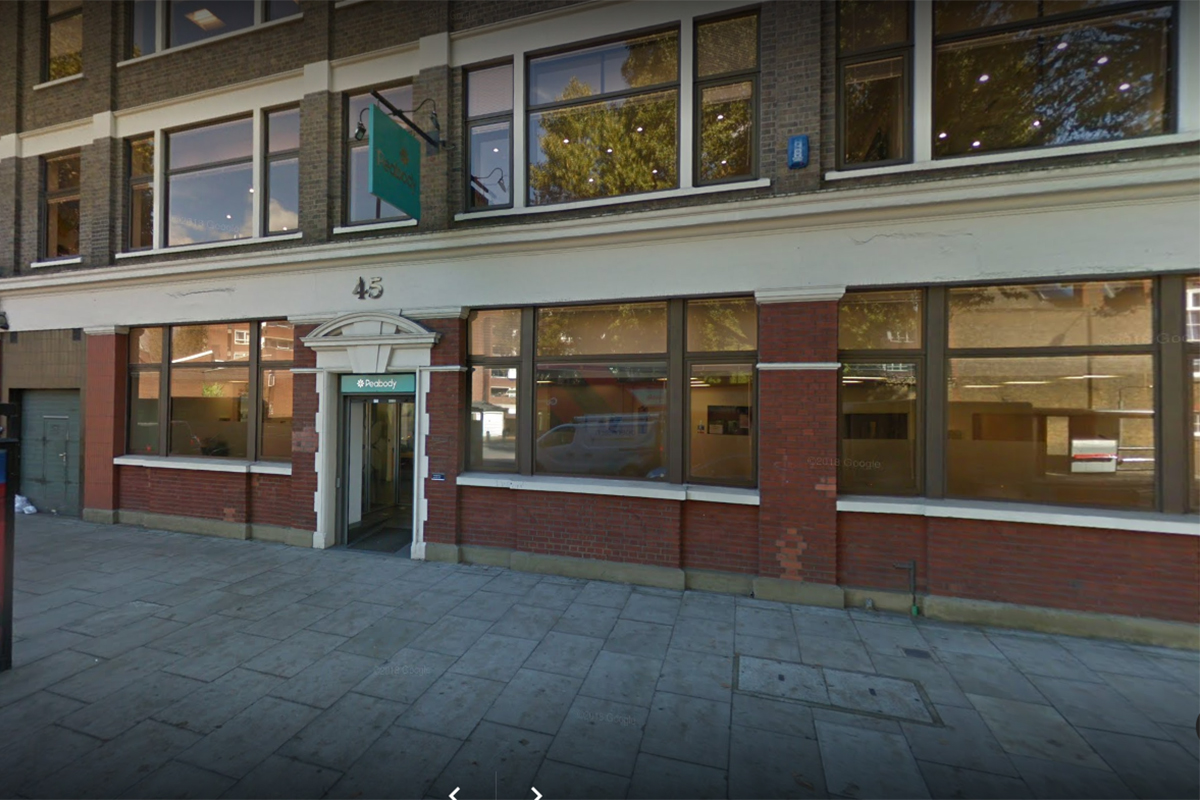Peabody to halt purchase of ‘large site’ following shared ownership announcement
A major London housing association will pause the purchase of a “large site” it is hoping to develop after the government unveiled proposals to give tenants the right to shared ownership.
Peabody, which owns more than 56,000 homes, said uncertainty about how the policy could affect borrowing has prompted the move.
Housing secretary Robert Jenrick announced that housing association tenants will be given a right to buy 10% of their homes at the Conservative Party conference on Monday.
The offer will be automatic for newly built homes, Mr Jenrick said, with associations being asked to enter a voluntary agreement with government for existing tenants.
Brendan Sarsfield, chief executive of Peabody, told Inside Housing: “Shared ownership is a great product and I’m happy to offer it but we have got to keep fighting for social rented housing because that’s what is really needed in London.
“I wish they had talked to us beforehand. We are about to buy a large site that will take many years to build out and we’ve got to pause that now while we see where this goes.
“We have to understand how it might impact on borrowing capacity before we make a big commitment like this on land.”
Housing associations are able to borrow money at low rates thanks to having a dependable stream of income through social housing rents.
Some in the sector believe that the prospect of their homes being converted to shared ownership may risk compromising that certainty and lead to an increase in borrowing costs.
Some lenders already place limits on the proportion of shared ownership units they will offer security against.
Others in the sector have also voiced concerns about how the plan may impact associations’ borrowing abilities.
Sinéad Butters, chief executive of Aspire Housing and chair of PlaceShapers, said: “What are the funders going to say?
“Are they going to say all of our development portfolio is counted as shared ownership, which reduces our capacity in the future and if we enter into voluntary arrangements?
“What happens to loans that are secured on a market value subject to tenancy… what happens if it affects all the stock?”
Boris Worrall, chief executive of Rooftop Housing Group, said: “If they were to make grant for new build housing conditional on you agreeing to shared ownership, guaranteed that is going to undermine our ability to build certainty into our business plans and I think lenders may have issues with that.
“We’re able to borrow at the level we can because of the level of certainty in our business plans, which is predicated on a steady and predictable stream of rental income.
“As soon as we say any of those can be flipped into shared ownership, that undermines that certainty.”
Tony Stacey, chief executive of South Yorkshire Housing Association, said that his association is currently trying to refinance to develop more homes, but that the changes brought by the new announcement would likely see the attention of the organisation’s board and finance directors being moved away from the financing deal.
He said: “It’s a huge distraction from us trying to build as many homes as we can.
“I don’t know whether it will stop us refinancing. What I do know is it’s a huge amount of work for not much benefit really, to try and find a path through this, so you know negotiating with local authorities, the nomination rights, the funders, all sorts, there’s lots and lots of detail that needs to be sorted out.”
He echoed Mr Sarsfield’s concerns about the lack of warning the sector received on the plans, saying that they “came out of the blue”, with no real thought about what the impact of this would be on associations.
However, Jonathan Layzell, development director at Stonewater, said: “My instinct is that it could be positive for housing associations who will get a capital receipt they hadn’t necessarily expected, albeit I think we’ll have to look at the detail to understand whether there is any impact on our ability to raise long-term finance against our assets, which is how we in large part fund our development programme.”
Tom Paul, director of treasury and commercial at London housing association Optivo, said that shared ownership assets were still attractive for lenders to lend against.
He said: "All of our loans enable us to use shared ownership as security. The mechanism of converting a rented asset to a shared ownership asset whilst in charge to a lender could be complicated, but shared ownership assets themselves are good stable, reliable high quality assets that people like to lend against."
Peter Denton, chief executive at Hyde, said: “I’m very supportive of all who want to encourage avenues and access to ownership of homes but at the same time we are also seeking to ensure social housing provision continues to increase.”













